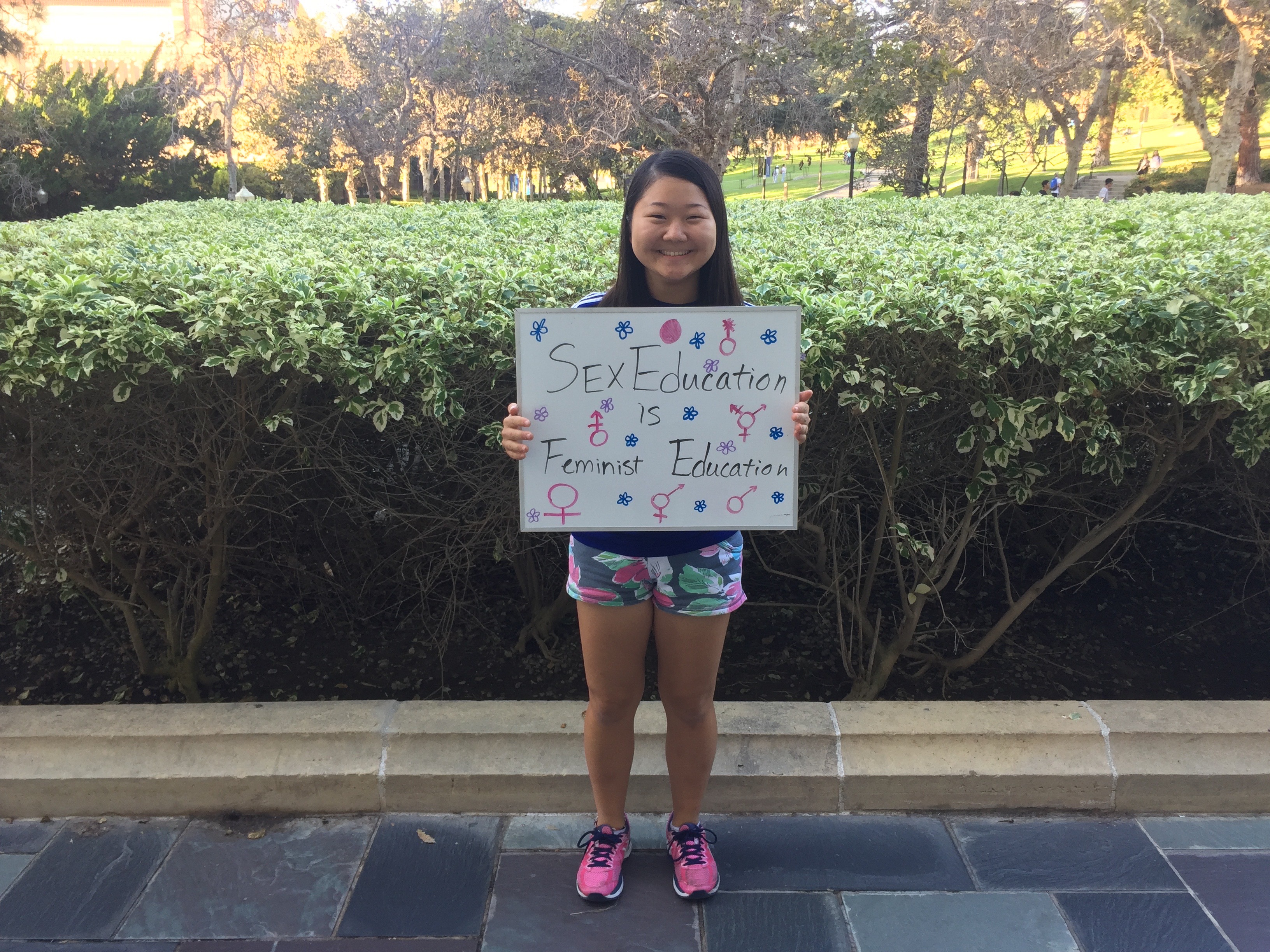Featured UCLA Feminist: Karan Ishii

Photo by Laine Gruver
Karan Ishii is a second-year student majoring in human biology and society with hopes of pursuing a career in medicine, with a focus on women’s health. In a medical setting, Ishii looks forward to being a supportive doctor who can properly advise women in delicate choices regarding their reproductive health. Beyond and because of her passion for reproductive health, Ishii is a strong feminist who is intent on improving sex education and reducing the stigma surrounding sexual activity.
Consciousness of reproductive health typically begins with the sex education taught in elementary or middle school, which Ishii believes to be in serious need of improvement. She said, “I get angry when sex ed isn’t talked about or discussed properly. It’s a life skill, and it shouldn’t be such a big deal.” Ishii clarified that ‘big deal’ refers to the unfair taboo associated with comprehensive sex education.
As a passionate advocate of advancing sex education to be more intersectional and comprehensive, Ishii holds the Workshop Director position for Sexperts, UCLA’s sex education club that operates under the Student Wellness Commission. According to Ishii, many of the issues Sexperts work with are “inherently feminist issues.” She gave examples such as collaborating to make Amber Rose’s Slutwalk happen, as well as hosting workshops that “fill in the gaps in people’s sex education.”
Ishii outlined the risks of inadequate sex education, which range from something as small as not knowing a latex allergy could affect one’s sex life, to huge risks like unwanted pregnancy or STI exposure due to insufficient knowledge of contraceptives. Ishii acknowledged that “the communities that don’t teach [sex ed] well or at all are the ones with the highest rates of teen pregnancy. Which doesn’t make sense, except that it does.”
The reason the relationship between insufficient sex education (abstinence-only) and high rates of teen pregnancy makes sense, as Ishii put it, because abstinence-only sex education is ineffective. Public health data shows that teens are going to have sex regardless. The downfall of abstinence-only education is students who receive it are much less aware of the risks pertaining to sexual activity. Risks such as STIs or unwanted pregnancy can be lowered or even prevented, but if students aren’t offered information on how to do so, they are left without a clue.
Ishii also spoke on the intersectionality of Sexperts as an organization, emphasizing that “not everybody in Sexperts has had heterosexual conventional intercourse.” The organization makes a strong effort to advocate for safe sex between any two partners, no matter their gender. Ishii believes that sex education should be empowering and inclusive for everyone, not just people who are sexually active and heterosexual. Sex education has the ability to “give people of all genders and sexualities control of their bodies, and to show them when their autonomy is being violated.”
In Ishii’s eyes, feminism means “supporting the rights and freedom of women.” Proper sex education is an underappreciated method of supporting those rights and those freedoms. Ishii remains optimistic about the future of sex education, but recognizes that there is an incredibly amount of meaningful work to be done before sex education can be considered sufficient. To Ishii, sex education should be accessible to everyone; sex education is feminist education.




